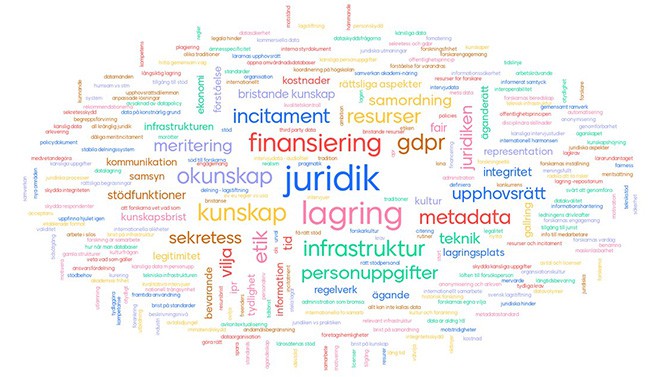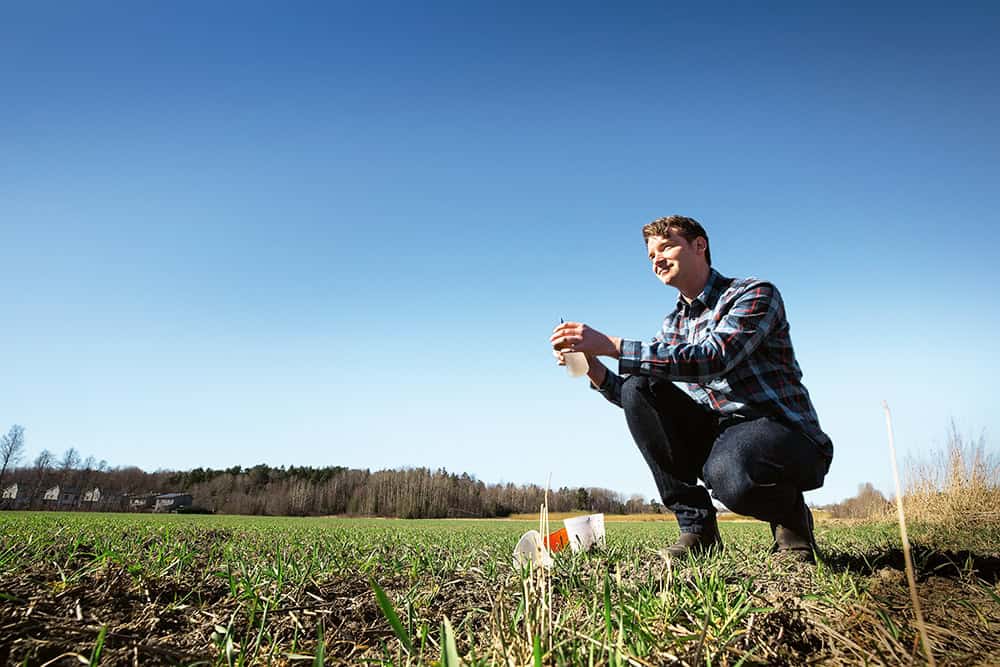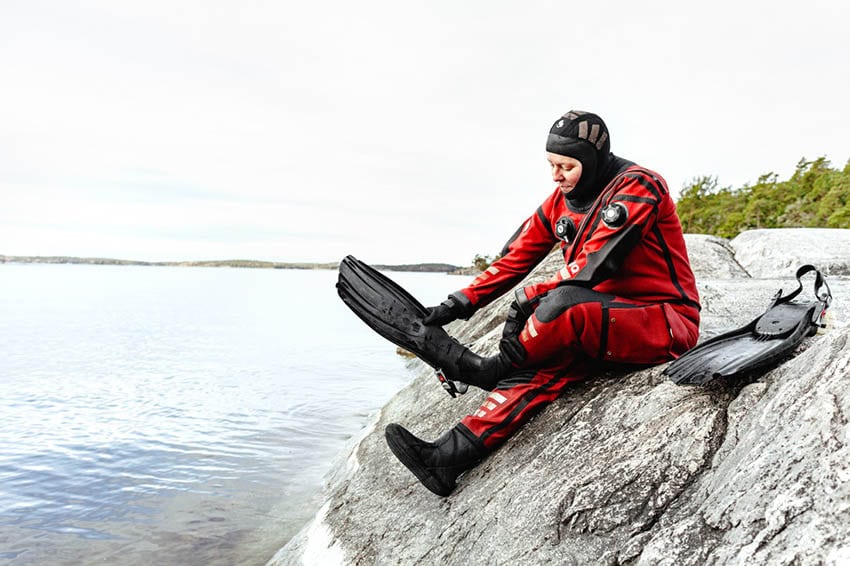The webinar ”Open access to research data – challenges and opportunities” was arranged by the Association of Swedish Higher Education Institutions, (SUHF), SULF and the Swedish Research Council. It was based on SUHF’s roadmap, whereby open access to research data is to have been implemented by 2026.
The early part of the seminar was dominated by talk of the opportunities afforded by open access. Astrid Söderbergh Widding, Vice-chancellor of Stockholm University, spoke about increased transparency, greater reproducibility and ultimately better research quality, while the Swedish Research Council’s Director General Sven Stafström declared “If we do this successfully, it will mean higher quality research and greater efficiency in the entire system.”

But a number of presentations later, among them two by lawyers, the complexity of the project had become clear. Regulatory frameworks and different parts of legislation are intertwined with each other and legal, ethical and career considerations intersect in all manner of ways. In addition, there are issues related to infrastructure, storage functions and common systems for metadata, as well as the support functions that need to be built up. “It will drive up costs – so I take this opportunity to plead for increased state funding,” said Hans Adolfsson, Vice-chancellor of Umeå University.
But there are examples where such issues have already been resolved. Johan Rung, of SciLifeLab, reported on the database that shares data on covid-19 internationally and which was started very quickly after the outbreak of the pandemic.
Great amount of training required
In the panel discussion at the end of the seminar, Mats Ericson, the President of SULF, was asked what SULF’s members think. “What is being expressed is a general concern,” he said. “What will happen? What will happen to me? There are lots of thoughts and preconceived ideas about what it will mean. And we have noticed in the discussion and comments at this seminar how complex the question of open access to research data is.”

Ericsson said that it will be a very steep learning curve for researchers and all those who support research. “We will need a major training programme in Sweden to be able to handle this. It is not enough to just devote money. It requires competence, from the individual doctoral candidate all the way to the professor and research team leader, plus those in management positions at higher education institutions, plus all responsible authorities. It’s a monumental task that we need to work on together.”
What happens to the researcher’s material?
He continued with the question of what open access means for higher education career development systems. “I think that many of our members are concerned about what will happen to the material they have put great effort into collecting. Will others take it and use it to acquire further qualifications and progress in their careers? This might well happen in some cases, and in some cases it can certainly be beneficial in that it leads to new collaborations.”
Mats Ericson believes that there is a lot of uncertainty about what will happen with the career development system. “There is a lot of concern about these issues. Being a researcher is a very challenging job. There’s tough competition. So unfortunately, from time to time, we have an environment where we are very afraid that others will benefit from what we have put together through hard work. We can’t ignore those cultural issues. They say that culture eats structure for breakfast, so we should be careful not to believe that infrastructure will solve this issue.”
Handling of sensitive data
Moderator Sofie Björling of the Swedish Research Council raised a question from seminar participants. “If you interview people about sensitive matters and data is to be openly available, can it lead to people not doing that kind of research any longer?”
Mats Ericson replied that this is a relevant question. “I have actually been tried and found guilty by the Parliamentary Ombudsman. When I was Vice-chancellor of the Swedish Defence University, I didn’t release material about studies in Malmö on radicalisation of Islamism quickly enough. If the data had got into the wrong hands, it would have endangered the lives of certain people. There is always research that verges on being life-threatening if it gets into the wrong hands. Researchers who write about such topics already have significant problems with how to conduct their research.”
Different countries can take advantage

Foto: Tobias Ohls
Sigbritt Karlsson, Vice-chancellor of KTH, the Royal Institute of Technology, took up the international security perspective. “There might be politicians in different countries that can use data in a way we can’t predict. I think that aspect should be part of the debate. It might be data from interviews, but it might also be what a virus looks like, or individual people’s DNA. Data that researchers have worked hard to acquire, and then other people use for unsavoury ends. I see this as something that needs to be addressed.”
Umeå University’s Vice-chancellor, Hans Adolfsson, agreed. “What you are talking about, Sigbritt, is also the downside of open data: that we do not know who will use it and how they will use it. Those risks will always exist. The question is whether the opportunities outweigh the risks. That is something to bear in mind.”
At this point, moderator Sofie Björling declared “I think there is a lot of focus on the problems and little on the benefits.”
“Don’t lose sight of the individual”
The last word went to Mats Ericson. “It’s important that we don’t forget the individual researchers. But we also need to respect the nature of different subjects. They have very different issues. I sometimes think that scientific-technical research, and to some extent medical research, has driven over Swedish research Sweden like a steamroller in the past 30-40 years. The paradigm that applies in the social sciences and humanities has been eroded to a large extent, both in terms of money and thinking.”
“Open access to research data is a very positivist, legal and political project, where many soft issues of a humanistic and social science nature get forgotten,” he continued. “The individuals also get overlooked. In this project, it is important that the steamroller does not just run over a lot of anxious and frustrated researchers.”

















